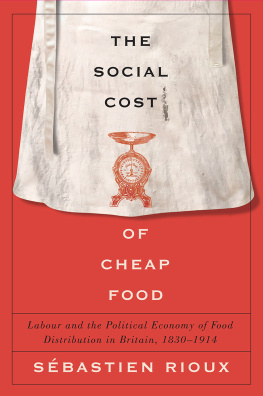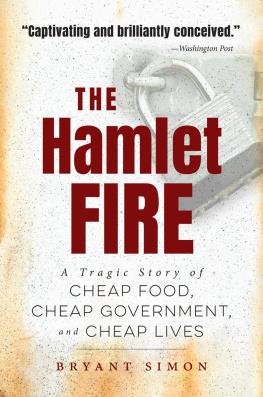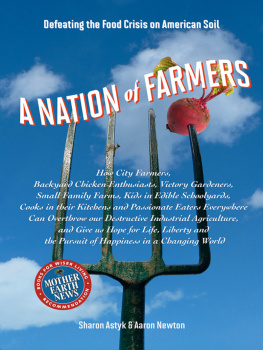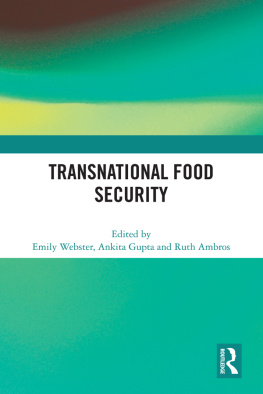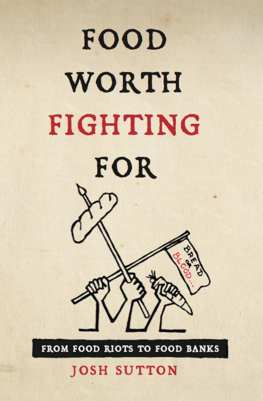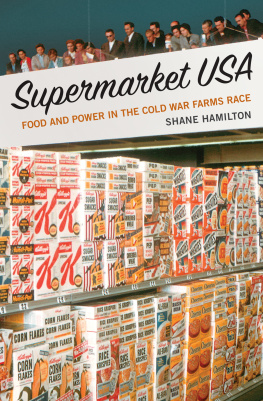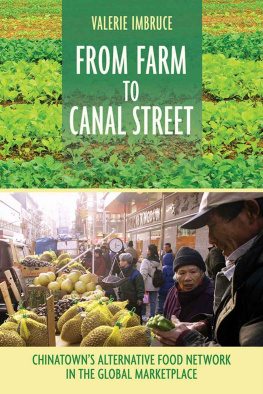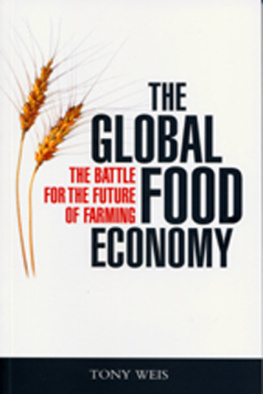
THE SOCIAL COST OF CHEAP FOOD
The Social Cost of Cheap Food
Labour and the Political Economy of Food Distribution in Britain, 18301914
SBASTIEN RIOUX
McGill-Queens University Press
Montreal & Kingston London Chicago
McGill-Queens University Press 2019
ISBN 978-0-7735-5899-1 (cloth)
ISBN 978-0-7735-5900-4 (paper)
ISBN 978-0-7735-5957-8 (ePDF)
ISBN 978-0-7735-5958-5 (ePUB)
Legal deposit third quarter 2019
Bibliothque nationale du Qubec
Printed in Canada on acid-free paper that is 100% ancient forest free (100% post-consumer recycled), processed chlorine free
This book has been published with the help of a grant from the Canadian Federation for the Humanities and Social Sciences, through the Awards to Scholarly Publications Program, using funds provided by the Social Sciences and Humanities Research Council of Canada.

We acknowledge the support of the Canada Council for the Arts.
Nous remercions le Conseil des arts du Canada de son soutien.

Library and Archives Canada Cataloguing in Publication
Title: The social cost of cheap food : labour and the political economy of food distribution in Britain, 18301914 / Sbastien Rioux.
Names: Rioux, Sbastien, 1980 author.
Description: Includes bibliographical references and index.
Identifiers: Canadiana (print) 2019011536x | Canadiana (ebook) 201901 15394 | ISBN 9780773558991 (hardcover) | ISBN 9780773559004 (softcover) | ISBN 9780773559578 (ePDF) | ISBN 9780773559585 (ePUB)
Subjects: LCSH: Food industry and tradeGreat BritainHistory19th century. | LCSH: Food industry and tradeGreat BritainHistory20th century. | LCSH: LaborGreat BritainHistory19th century. | LCSH: LaborGreat BritainHistory20th century.
Classification: LCC HD9011.5 .R56 2019 | DDC 338.1/941dc23

This book was typeset by True to Type in 10.5/13 Sabon
mes parents,
Louise et Daniel
Contents
Tables
Acknowledgments
For their ongoing help and support, I owe a great debt of gratitude to Isabella Bakker, Jennifer Clapp, Stephen Gill, Genevieve LeBaron, Philip McMichael, and David McNally. I also benefitted immensely from conversations with Ian Bruff, Jamie Peck, Kendra Strauss, Cemal Burak Tansel, and Marcus Taylor. I am most grateful to the unwavering friendship of Maxime Blanger, Thierry Drapeau, Frantz Gheller, Xavier Lafrance, Jonathan Martineau, Rmi St-Maur, and Michel Ttreault. I also want to thank James MacNevin and Kyla Madden, my editors at McGill-Queens University Press, for their sound advice and steadfast commitment to this project. Special thanks to two outstanding reviewers for their help; they know who they are. This book would not have been possible without the intellectual contribution, dedication, and editorial skills of Sibel Ataoul, whose love and patience made even the most difficult moments bearable. Finally, I want to thank my parents, Louise Ttreault and Daniel Rioux, and my sister, lizabeth Rioux, for their encouragement throughout those years. For all their love and support, I dedicate this book to my parents.
THE SOCIAL COST OF CHEAP FOOD
Introduction
When the Quarterly Review published its volume of June to September 1854, it estimated the number of food distributors in London alone at over 100,000 persons. The smooth working of this great distributive machine, it concluded, is due to the principle of competition that spring which so nicely adjusts all the varying conditions of life, and which, in serving itself, does the best possible service to the community at large. The journals blind faith in the precepts of bourgeois political economy was just that, impervious to the reality of poverty, hunger, and precariousness within which were caught many actors in the food distribution sector. Yet, while the journals ideological glasses masked the harsh economic reality of those toiling daily to provide the metropolis its food, it was right in recognizing their vital importance in giving the best possible service to the community at large. Contemporaries were all too aware that food distribution was central to a market-dependent population.
In its classical formulation, political economy is the study of production and trade, and the ways in which they interact with government, law, and custom. Its focus on production and the commodification of land, labour, and money, while essential to understanding the ways in which societies produce and reproduce themselves across time and space, has nonetheless tended to obscure or downplay other spheres of economic activities or moments in the circuit of capital. Political economists working on food have tended to derive the source of social change and transformation from dynamics pertaining to food production, including labour and agrarian relations, food sovereignty and the politics of food, land and resource dispossession, and the financialization of food and agriculture. Whereas political economy tends to problematize distribution as being the distribution of wealth among classes and social groups, the political economy of food in general and agrarian political economy in particular have tended to downplay the conceptual and historical importance of distribution in the food chain economy by overwhelmingly focusing on relations of production and, to a lesser extent, consumption patterns.
To the extent that transformations in the sphere of distribution are problematized and their consequences assessed for production and consumption, they tend to be portrayed as a new phenomenon following neoliberal restructuring. While I fully agree that the rise of a corporate food regime registers a dramatic shift in world-scale agri-food relations, too narrow a focus on contemporary developments runs the risk of reproducing the unacknowledged historical importance of distribution within the food system, therefore suggesting that political economys overemphasis on production was justified, at least until the neoliberal restructuring of the food system. The lack of theoretical and conceptual reflection on the role of distribution within political economy is puzzling given its historical importance in Britain, the cradle of the Industrial Revolution. As we shall see, distribution was not only a key dimension of the Victorian and Edwardian social, political, cultural, legal, and economic history; it was also central to debates, conversations, and concerns at the time.
By the 1830s Britain was rapidly transitioning from an agricultural society to an urban, industrial one. Improvements in communications, especially railways, accelerated the pace and scale of change, and contributed further to increasing the space between food production and consumption. Although greatly impressed by the changes in methods of production and the associated shifts in consumption, contemporaries were also fascinated and preoccupied by questions pertaining to the sphere of distribution. Peoples growing dependence on the market for their food supplies demanded an appropriate, thoroughly modern distributive system capable of ensuring the efficient circulation of goods in time and space. The Social Cost of Cheap Food
Next page
